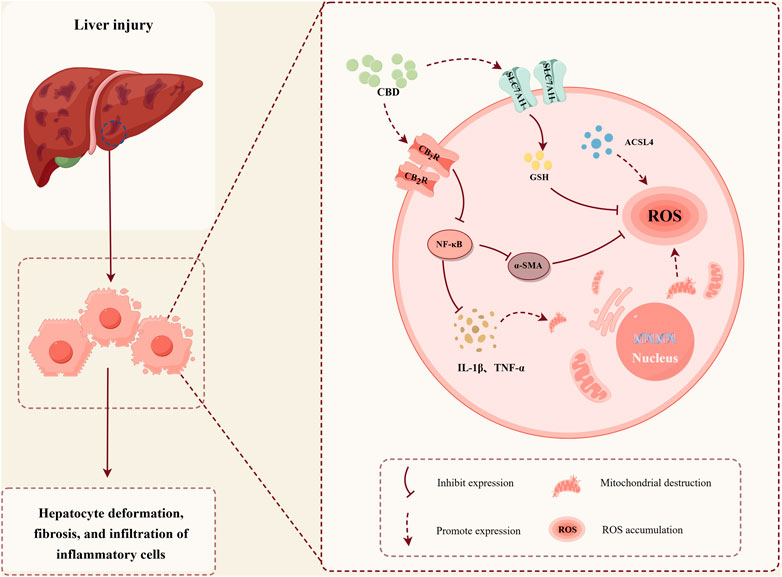Cannabidiol (CBD) may help protect the liver from stress-induced injury by targeting inflammation, oxidative stress, and mitochondrial damage, according to a new study published by the journal Frontiers in Pharmacology.

A team of researchers from Shenzhen Traditional Chinese Medicine Hospital, Guangdong Pharmaceutical University, and Guangzhou University of Chinese Medicine explored CBD’s impact on liver injury caused by acute and chronic stress. Using a mouse model, they found that CBD produced significant improvements in liver function and cellular health.
Mice given CBD showed lower levels of liver enzymes (AST and ALT), which are key indicators of liver damage. The study also found that CBD reduced inflammatory markers like IL-1β and TNF-α, while increasing the activity of antioxidant enzymes such as SOD and GSH-Px.
On a cellular level, CBD boosted expression of CB2 receptors and reduced α-SMA, which is associated with liver fibrosis. It also decreased levels of ACSL4, a marker linked to cell death through oxidative stress, while upregulating the protective protein SLC7A11. Electron microscopy revealed that CBD helped preserve healthy mitochondrial structure, suggesting a reduction in oxidative damage.
The study concludes that CBD protects against stress-related liver injury by modulating the CB2R/α-SMA and SLC7A11/ACSL4 pathways. Researchers say this provides support for CBD’s potential use in treating liver conditions triggered by stress.
For the full text of the study, click here.







